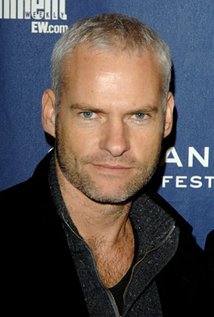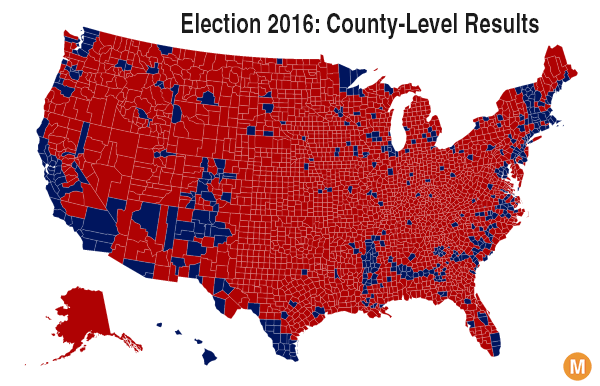Three Billboards Outside Ebbing, Missouri: The Most Anti-White Movie Ever Made

Martin McDonagh
I went with family and friends to see the movie Three Billboards Outside Ebbing, Missouri written and directed by Martin McDonagh. Three Billboards won four awards at the 2017 Golden Globes, including Best Screenplay for McDonagh.
The Washington Post’s film critic Ann Hornaday wrote this about Three Billboards:
The film is as dark as they come, a pitch-black, often laceratingly [trashingly] funny look at human nature at its most nasty, brutish and dimwitted.
In the film Three Billboards who’s portrayed as nasty, brutish and dimwitted? Answer: White middle class people living in flyover America.
Irish born McDonagh, who is white and privileged, makes Three Billboards the ultimate movie about I hate myself for being white and privileged. It’s self-flagellation on the silver screen. It is also an attack against “fly over America” and those (nasty, brutish and dimwitted) deplorables who overwhelmingly voted for Donald J. Trump, who is white and privileged.
The characters in Three Billboards are a “basket of deplorables” in the eyes of McDonagh, Hollywood, Hillary Clinton and her supporters.
The theme of Three Billboards fits the narrative pushed by Robert Jensen, author of the book The Heart of Whiteness: Confronting Race, Racism, and White Privilege, who wrote “The world does not need white people to civilize others. The real White People’s Burden is to civilize ourselves.” Jensen blames white people for being uncivilized, i.e. nasty, brutish and dimwitted.
Metrocosm produced the below map showing the county-level results for the 2016 election. In the map we see that the state of Missouri overwhelmingly voted for Donald J. Trump. Missouri has a Republican Governor and both houses of the Missouri legislature are controlled by the Republican Party.

Map by Metrocosm.
Three Billboards is a great way for those who voted for Hillary Clinton to laugh out loud at those unsophisticated dolts who live in flyover America.
Every character in Three Billboards, who is white, is dysfunctional. The mother of the daughter raped and killed is divorced and told her daughter to walk to a party and wished that her daughter be raped on her walk back home. The mother’s wish comes true. The mother then blames the sheriff, who is white, of not doing enough to catch the killer of her daughter, the suspect being white and in the military. This leads to the infamous use of three bill boards which leads to a series of emotional revenge filled acts (beatings, property destruction, attacks by and against law enforcement). The white mother, the local law enforcement officers, who are all white, and the local community, which is portrayed as predominantly white, progressively go down a “dark as they come” path. A path that leads to physical violence, which begets escalating physical violence and ends with a vigilantly quest by two white people (the mother and former deputy) to find another white military man they suspect is a rapist.
That’s the theme of the movie. White people are nasty, brutish and dimwitted.
It fits perfectly with the narrative of House Minority Leader Nancy Pelosi’s statement that the goal of President Trump’s immigration plan is to, “make America white again.”
According to the U.S. Census Bureau in 2016 an estimated 76.9% of Americans are white. If you’re white and go to see this movie be prepared to see yourself through the lens of Hollywood. Those like you are portrayed as dimwitted, violent, revengeful and stupid. And Hollywood wonders why it’s box office revenues are in the tank.
William R. Hawkins in an article titled Culture Wars: Supporting “Them” Over “Us” Until We’re Dead writing about another Hollywood film that has been nominated for multiple Academy Awards states:
This “them over us” attitude has penetrated mainstream entertainment, as the even more spoiled Hollywood Left portrays America as a place where an increasingly alien and monstrous “them” are to be embraced as being superior to us. For example, “The Shape Of Water,” a movie directed by Guillermo del Toro which was considered headed for a number of high awards. It is billed as a fairy tale romance between an American girl and an amphibious monster from the Amazon. This is not “Beauty and the Beast” where the beast is no such thing. Del Toro has taken “The Creature from the Black Lagoon” as his inspiration, turning it on its head. As he told NPR (Dec. 1), if the movie had been made in 1962, the year in which it is set, the government agent who captured the monster would be the hero, but now he is the villain. “And the image of the monster or ‘the other’ carrying the girl on his arms would be the image of horror.” In Del Toro’s imagined world, however, the girl falls in love with the monster and willing commits acts of bestiality with it. To Del Toro, “the moment she and the creature get together is done almost like a painting. It is so poetic and balletic that, you know, you never see anything shocking except the notion.” Yet, Del Toro is very frank about the nature of the creature, “He stays in its carnal form – an animal. And he still has a very controversial diet of raw protein that includes cats, you know? And he doesn’t get civilized and eat a cat with a fork and a knife.” The monster is also described as “ a god-like figure” which goes back to the long tradition of “the noble savage” who being closer to primitive nature sits on a higher plane than those of us who have succumbed to civilization.
As Stefan Molyneux an Irish-born Canadian author and commentator said, “History has been stolen from us and replaced with guilt inducing lies.”
Cecil B. DeMille, who gave us the 1956 Academy Award winning film The Ten Commandments, said, “Give me any two pages of the Bible and I’ll give you a picture.” Cecil B. DeMille also said, “It is impossible for us to break the law. We can only break ourselves against the law.” DeMille was speaking about God’s laws, the Ten Commandments, everyone one of which was broken by the characters in Three Billboards.

Isaiah 1:16-18 New King James Version (NKJV) reads:
16 “Wash yourselves, make yourselves clean;
Put away the evil of your doings from before My eyes.
Cease to do evil,
17 Learn to do good;
Seek justice,
Rebuke the oppressor;[a]
Defend the fatherless,
Plead for the widow.
18 “Come now, and let us reason together,”
Says the Lord,
“Though your sins are like scarlet,
They shall be as white as snow;
Though they are red like crimson,
They shall be as wool.
Perhaps McDonagh in particular and Hollywood in general should heed the Word of God?
RELATED ARTICLE: Trump Administration Strikes a Blow Against Identity Politics



Leave a Reply
Want to join the discussion?Feel free to contribute!